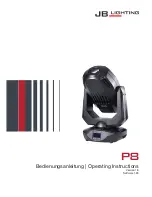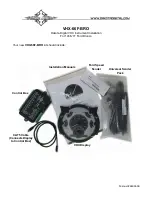
Safety
4 / 24
110410
EN
• Always completely unwind the power cord.
• Never place the appliance or other objects on the power cord.
• Always take hold of the plug to disconnect the appliance from the power supply.
• Check the power cord regularly for damage. Do not use the appliance if the
power cord is damaged. If this cable is damaged, it must be replaced by
customer service or a qualified electrician in order to avoid dangers.
Inc orrect operati on of t he applianc e may c ause fire or explosi on haz ard due t o igniti on of its cont ent.
Fire hazard / flammable materials hazard / explosion hazard!
• Do not use any electric devices in the appliance.
• Do not store nor use petrol or other flammable liquids and gases in the vicinity of
this or any other appliance. Those gases may cause fire or explosion hazard.
• Do not put into the appliance any explosive materials, like sprays filled with
flammable propellants. Contents of containers filled with flammable gases and
liquids may leak in low temperatures, and the contents may catch fire from
sparks generated by an electric appliance. Explosion hazard!
• In the case of coolant leakage, pull the plug from the socket. Remove all
sources of ignition in the vicinity, ventilate room and contact technical service.
Avoid coolant getting in contact with eyes, as it may cause serious eye damage.
• Never use any flammable liquids for cleaning the appliance or its parts. Gases
released may cause fire or explosion hazard.
• In the case of fire, disconnect the appliance from the power supply before
attempting adequate fire-extinguishing actions.
• Never attempt to extinguish fire with water if the appliance is connected to the
power supply. Following extinction of fire, ensure sufficient fresh air inflow.
• Defrosting process may not be sped up with mechanical means or heat energy
sources (candles or heaters) nor with any other means. Vapour produced may
cause short-circuit and too high temperatures may damage the appliance.
• All ventilation slots should not be obstructed during operation.
• Never attempt to damage cooling installation of the appliance.
Operating Personnel
• The appliance may only be operated by qualified personnel and trained
specialist personnel.
• This appliance may not be operated by persons (including children) with limited
physical, sensory or mental capabilities, nor by persons with limited experience
and/or limited knowledge.
• Children should be supervised to ensure that they are not playing with or
switching on the appliance.






































